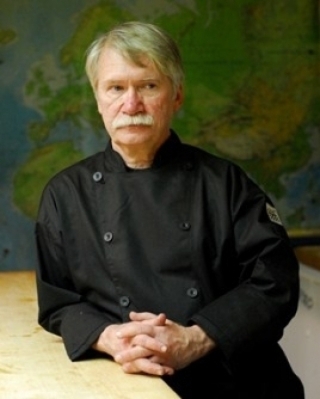
Teach the Details in 2025
03 February 2025Here are a few things I know about teaching that may be true for you and your students as well.
By Paul Sorgule, MS, AAC
Feedback & comments: This email address is being protected from spambots. You need JavaScript enabled to view it.
It is another year and another opportunity to make a difference in the lives of young people looking for a future in the food business. It is gratifying to do what we do, every day and in every way. Teaching is something special, especially when our methods connect with a new generation of learners and when we, as teachers, understand our role.
Teachers must know the relevant information, process or skill. Once that is decided, they then move on to how to pass it on, setting the correct stage for learning, and assessing success.
Here are a few things I know about teaching that may be true for you and your students as well:
Details are important
Setting very high benchmarks is a responsibility of every chef who wears a toque. There should be no variance from this objective in the classroom or culinary lab. Show students where they need to land, establish benchmarks as measurement standards, teach and train to that end game, and don’t allow students to accept anything less. That does not infer students can’t be allowed to stumble along the way. You should ensure the standards you set are the ones they seek to meet despite any setbacks. Set the standards, build an understanding of why those standards are important, focus on the skills necessary to reach those standards, focus on quality first and then gradually add the components of speed and problem solving. From precisely cutting vegetables to the symmetrical layout of a finished plate – it’s all important, so start today.
Rigor is an essential puzzle piece
The work of a cook and chef is hard. The work in your classrooms should be hard as well. Educators are challenged with preparing students to face the difficult waters ahead, so don’t hold back. Give them plenty of challenges, help them find ways to approach the work, and expect nothing but their very best effort. Assign them 100 text pages to read by tomorrow and encourage them to work as a team to complete it. Five students reading 20 pages each, gather later in the day to discuss it and share their thoughts leads to effective shared understanding. This is how kitchens work.
Repetition is the best road toward skill proficiency
What are the essential skills, the absolute most important ones every cook should know and master? Build those skills into everything you do in the kitchen so that gradually they build competence and confidence. Knife skills will never evolve by dicing a few carrots and onions; it comes when they have done so with 100 pounds of carrots and onions with the clock ticking.
We will not be successful teachers unless students are set to be problem solvers
Create scenarios in the classroom and kitchen forcing students to be prepared and able to find solutions to unforeseen challenges. Turn off the power in the middle of a class and challenge them to find out how to still serve a luncheon for 50 people. Give them a recipe with a few missing ingredients and challenge them to still produce an exceptional finished product. As a chef, you have been there. Finding solutions is the difference between becoming a cook and eventually stepping into the chef’s role.
Our students will never know enough and neither will we
Don’t expect to teach them everything. Focus on the essentials and show them how to learn. Experience will take over teaching. Demonstrate to them their education will continue forever by embracing the reality yourself. Find opportunities to constantly learn new things and build your bag of tricks, share how much you still need to learn and how excited you are to do so. This way they will embrace learning as a way of life.
We may not have all the answers, but we must know how to find them
Students will oftentimes challenge us with questions we are ill-prepared to answer. Admit you don’t know but then pull out all the stops to find the knowledge or skill necessary to answer those questions. This is a sign of strength - not weakness.
An important part of our job is to demonstrate relevance
Remember that three-year-old growing up in your home with more questions than you have answers? We never lose our desire to find the answer to “why.” They may not always express it, but your students want to understand why a step, process, method, or ingredient is critical to a successful dish. When we can address relevance then a major barrier to learning slips away.
Stories lead to learning facts. We must be great storytellers
One of the greatest values you, as a chef, bring to the classroom is your portfolio of stories. Your ability to tell those stories and relate them to a topic in class, a process, a particular dish, a way to bring a team together, or a way to solve what seems to be an insurmountable problem, is your superpower. Use it because this is what will be remembered.
PLAN BETTER – TRAIN HARDER
Paul Sorgule, MS, AAC, president of Harvest America Ventures, a mobile restaurant incubator based in Saranac Lake, N.Y., is the former vice president of New England Culinary Institute and a former dean at Paul Smith’s College. Contact him atThis email address is being protected from spambots. You need JavaScript enabled to view it..
